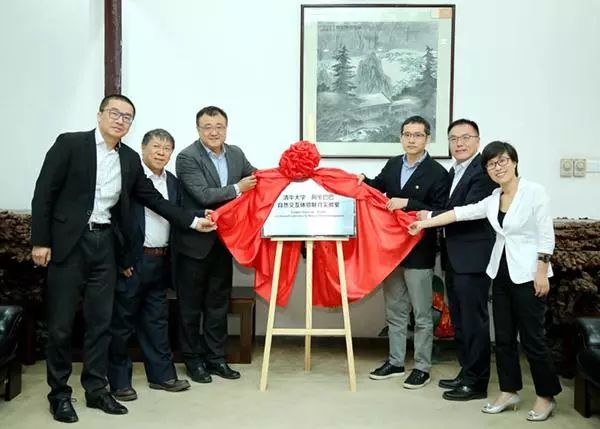In order to allow the machine to communicate "naturally" with others, Alibaba teamed up with Tsinghua University to set up a "joint laboratory for natural interaction experience" to explore the "next generation of human-computer interaction" in order to let the machines understand "emotions."

Natural interaction is an interdisciplinary discipline that integrates humanities disciplines such as psychology, sociology, and aesthetics, as well as computer science, engineering, materials, and cognitive sciences. The important direction of this discipline is to design a more natural and convenient human-computer interaction model based on applications.
Specifically, the joint laboratory allows the machine to recognize and understand human emotions by constructing mental models and emotional models. At the same time, using multi-channel sensing technology, help the machine to build "five senses" (voice, hearing, smell, touch, and even heart and brain activity, etc.) and understand "emotions." In this way, human-machine interaction is more like human-to-human communication.
The joint laboratory will rely on the Fine Arts Academy of Tsinghua University and Tsinghua Future Lab to participate in the joint construction. Xu Yingqing, a professor at the Fine Arts Academy of Tsinghua University, is the director of the laboratory and Fu Limin, head of the Alibaba Human-Machine Nature Interaction Laboratory, is the co-director.
Alibaba Chief Technology Officer Zhang Jianfeng said that Alibaba hopes to comprehensively upgrade the human-computer natural interaction experience through the rich application scenarios accumulated in the new retail and Wi-Fi networks, combined with Tsinghua University's first-class scientific research capabilities in the field of human-computer natural interaction.
Yang Bin, deputy principal and dean of Tsinghua University, said at the scene that Alibaba understands the needs of users most, understands the needs of the industry, and uses the next generation of human-computer interaction and user experience to realize emotional cognition and multi-sensory recognition based on the Internet of Things. There is a solid foundation for knowledge and interaction technology, and the two sides will embark on a new path in school-enterprise cooperation in the new era.
Make people communicate more smoothly and naturally
In order for the machine to interact with humans naturally, it is necessary to let the machine have multi-channel perception and emotional cognition. It can both read human language and put human language into the context of “contextâ€. Perceptual understanding.
But it is not easy to achieve this. Previously, human-computer interaction experienced changes from the command line, the graphical interface to the touch screen interface. People manipulate the computer by using a keyboard or mouse, and use remote controls and voice commands to manipulate smart devices, but these are just "unnatural" human-machine interactions that require learning.
This time, Tsinghua University and Alibaba established the Joint Laboratory for Natural Interaction Experience to change the above-mentioned “commanded†human-computer interaction so that machines can naturally communicate with people.
According to Alibaba, human-computer natural interaction refers to the construction of a smart human-computer interaction system that is more convenient and more in line with human natural perception and communication. A new generation of human-computer interaction technology allows computers not only to "count" but also "to speak and understand emotions", thus making various interactive devices more intelligent.
For Alibaba, Tsinghua University is the world leader in the fields of design aesthetics and human-computer interaction. It also has an interdisciplinary talent pool. At the same time, cooperating with universities to create a platform for production, research, and research is also an important development direction for the Alibaba Global Research Institute (also known as “Dharma Houseâ€) established in October 2017.
For Tsinghua, Alibaba has business scenarios such as new retail, financial technology, and intelligent networking, which can provide experimental and verification fields for new technologies such as human-machine interaction. More importantly, Alibaba also has customer business scenarios. These scenarios can provide training grounds for technological research and development in colleges and universities.
Adding human-computer interaction, Ali wants to solve the "last mile" of artificial intelligence landing
Compared with the grand vision of the establishment of the Dharma institute last year, Alibaba’s alliance with Tsinghua University is more pragmatic. The focus of the Tsinghua-Alibaba Natural Interaction Experience Lab is to solve the interactive problem of “people, machines, and fieldâ€, where “field†is “environmentâ€.
The environment is an advantage for Alibaba. From the current point of view, Alibaba has owned many scenarios including new retail, home, and car.
For example, Alibaba has previously launched the smart speaker "Tmall Genie" that can achieve smart home control, voice shopping, mobile phone recharge, takeaway, audio and music playback and other functions. However, these interactions are still based on imperative interactions. People need to wake up the machine in the scene and give instructions.
Although this approach is more avant-garde, it is not enough for natural interaction. Studies have shown that more than 90% of information in human communication is non-textual information. Therefore, emotional computing is an indispensable part of the next generation of human-computer interaction to achieve humanization. Emotion recognition, understanding, and expression technology are also one of the basic technologies of human-computer interaction.
This time Alibaba teamed up with Tsinghua to focus on solving the machine's emotional understanding. Alibaba said that in the future Tmall Genie application scene, the machine will no longer just respond to orders dryly, but will identify people’s emotions, emotions, contextual situations, and emotional feedback: For example, when you return home, smart The device will adjust the indoor temperature, ventilation, and lighting according to your physical condition.
In this way, all kinds of “dead†“fields†in life, such as homes, companies, shopping malls, etc., all “live†and become interfaces that can interact with humans in real time.
Other household electric appliance
gree , https://www.greegroups.com
